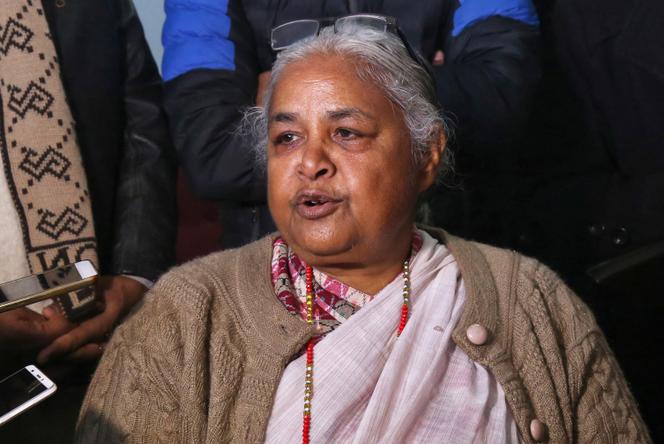


Nepal's first woman Supreme Court chief justice Sushila Karki was sworn in to lead the government in the Himalayan nation after deadly protests ousted the prime minister. "President Ram Chandra Paudel will appoint former chief justice Sushila Karki as the prime minister," presidential press adviser Kiran Pokharel told Agence France-Presse (AFP), ahead of her swearing in earlier on Friday, September 12. "Congratulations! We wish you success, wish the country success," President Paudel said to Karki after the swearing in ceremony, which was broadcast on state television.
Known for her insistence on integrity, the 73-year-old has often spoken about the need for transparency and independence in a judiciary frequently under intense political pressure. She is Nepal's first woman prime minister, but not its first woman leader –Bidya Devi Bhandari held the largely ceremonial role of president for two terms from 2015 to 2023.
Karki emerged as the leading candidate supported by many "Gen Z" representatives – the loose umbrella title of the protest movement. She told Nepali media that the Gen Z protesters had told her that "they believe in me" to lead for "a short time for the purpose of doing elections."
"She is a credible choice to lead the interim government," Anil Kumar Sinha, a former justice of the Supreme Court who worked with Karki, told AFP. "Her integrity has never been in doubt, and she is not someone who can be intimidated or easily influenced. She is courageous and not swayed by pressure."
In a speech broadcast on Nepali media earlier this year, she spoke of ingrained corruption. "We see it everywhere but we don't speak – now we need the youth to speak up, take the lead and stand in elections," she said. "What I have seen in the last 35 years does not work, I am 100% in favour of youth coming forward."
In 2012, Karki was one of two presiding Supreme Court judges who jailed a serving government minister for corruption – a first at the time for Nepal in its battle against a culture of graft.
Her tenure as chief justice, from 2016 to 2017, was brief but significant – challenging gender stereotypes and facing down politicians over corruption. It was under Karki's watch as chief justice that a court in 2017 sentenced three soldiers to 20 years in jail for the murder of a teenage girl, at the time only the second conviction for crimes committed during the war.
In 2017, the government tried to impeach her as chief justice after she overturned its choice for chief of police. The United Nations called the impeachment "politically motivated" and the move was blocked. She stepped down from the post at her retirement.
Nepal emerged from a brutal decade-long Maoist insurgency in 2006, and in 2008, the end of the country's 240-year-old Hindu monarchy. The transformation to a federal state was marred by political infighting and successive governments have dragged their feet on bringing perpetrators of abuses committed during the civil war to justice.
